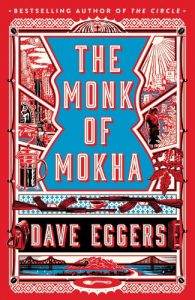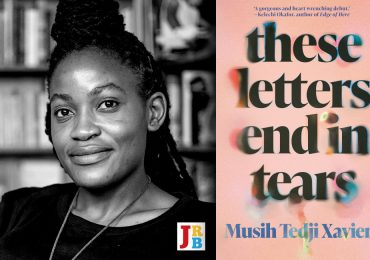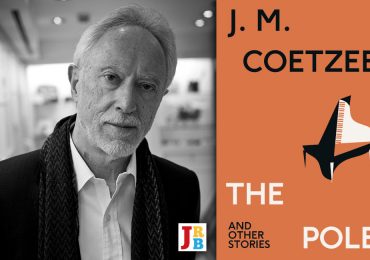The Monk of Mokha’s easygoing optimism glides over the prejudices and hatred that underdog minorities face in the United States, writes Imraan Coovadia.
 The Monk of Mokha
The Monk of Mokha
Dave Eggers
Penguin Random House, 2018
Mokhtar Alkhanshali, the real-life Yemeni-American hero of The Monk of Mokha, follows in the footsteps of Valentino Achak Deng, the Sudanese Lost Boy whose confessions Dave Eggers told in What Is the What (2006), and Abdulrahman Zeitoun, the Syrian-American businessman whose adventures in New Orleans during Hurricane Katrina were told in Zeitoun (2009). Since his debut memoir, A Heartbreaking Work of Staggering Genius (2000), Eggers’s success as a writer has come from the use of narrative techniques to tell the true stories of men who cross between America and its rival conceptual continents of Islam and Africa.
Mokhtar was brought up in a tough part of San Francisco, but his family is Yemeni and maintained close contact with its homeland, despite the War on Terror. Eggers occasionally drops into mock Orientalism to connect California to the Alkhanshali heartland—’Mokhtar Alkhanshali, firstborn son of Faisal and Bushra Alkhanshali, oldest brother to Wallead, Sabah, Khaled, Afrah, Fowaz and Mohamed, grandson of Hamood al-Khanshali Zafaran al-Eshmali, lion of Ibb, scion of the al-Shanan tribe, principal branch of the Bakeel tribal confederation, was a doorman’, and so on. But more often the style of The Monk of Mokha is casual, colloquial, and American, bridging worlds in a conversational register. As a young man ‘Mokhtar was an agent of chaos. He found a like-minded accomplice in a kid named Ali Shahin. Ali’s father was an imam at another mosque, but Ali, like Mokhtar, was given to distraction. […] They disrupted. They disturbed. They did no work, and the younger kids saw them doing no work …’
Alongside Mokhtar’s story is the outline of a small immigrant community which feels sufficient to itself, one of the most recent in a long line of such communities in the United States dating back centuries, and not especially singular: ‘Their building on Polk was full of Yemeni families, and they looked out for one another. The families went to the same mosque, the kids played soccer in the hallways …’ On the other hand, Mokhtar’s family in Yemen has an aristocratic grandeur when he visits: ‘Mokhtar went from his family’s one-bedroom apartment in the Tenderloin to his grandfather Hamood’s six-story home in Ibb … It was a castle, really, built by Hamood from nothing.’ In his grandfather’s castle is a vast ‘collection of daggers, swords, cowboy hats, holsters and guns. He had a Beretta, an array of Colt .45s, a collection of pistols he’d seen in Bond films and John Wayne movies. Hamood had seen every film John Wayne had ever made, and collected holsters, hats, wore cowboy boots—anything Wayne had worn, he wanted.’ The identification only goes in one direction. As Mokhtar reflects, who knows anything about Yemen in the United States? ‘He could ask anyone on the street where coffee had been born, and they might say Paris. They might say Africa. They might say Colombia or Java. But who would say Yemen? What the world knew about Yemen, now, was terrorism and drones.’
If Eggers’s writing is as buoyant as ever, the elements of the situation—mosques in America, a Muslim homeland, a boy given to trouble—have certain predictable consequences in the mind of a reader. In this case they don’t all come true. Mokhtar is the product of an aspirational milieu just like any other second- or third-generation American: ‘They brought you here so you could have choices,’ as his friend tells him. ‘And you’re blowing it. If you want to do something different when you grow up, you’re going to have to get your shit together.’ After the run of bad luck that lands him in the aforementioned job of doorman at a luxury building—’The job, Mokhtar’s existence there, was a reminder that there were those who lived in glass towers, and those who opened doors for them’—Mokhtar turns his attention to finding and importing coffee from Yemen, a task which turns out to be much more complicated than it sounds. Mokhtar’s story traverses the Houthi takeover in 2014, which eventually leads the country into a war with Saudi Arabia, but his efforts result in the creation of expensive and highly desirable brands of coffee back in California. In 2017, while Yemen is in turmoil, Coffee Review gives Mokhtar’s Haymah micro-lot coffee a 97 rating: ‘the highest score issued in the publication’s twenty-year history’.
In The Monk of Mokha, as in What Is the What, Eggers focuses on one lucky survivor rather than the tens of thousands who were not so fortunate to come to America. His style infuses the narrative with an easygoing optimism, mimicking the views of his protagonist, but it sometimes glides over the facts of a situation, understating the prejudices and hatred that underdog minorities, particularly Muslim minorities, have to face in the United States, not to mention the depth of communal strife in Yemen.
Eggers has been reluctant to talk about the recent history of Abdulrahman Zeitoun, the man he made a hero of in a previous book. Last year Zeitoun was sentenced to jail for four years for stalking his ex-wife Kathy. In March 2011 Kathy Zeitoun explained that she had let her husband mistreat her for years ‘because of the book, because of the movie, because of our business reputation’. There seem to have been unintended consequences of the fame Eggers brought to an otherwise obscure family.
The Monk of Mokha‘s coffee-centered, California-centered narrative may not be to everyone’s taste, but it makes interesting reading for its history of coffee, once a Yemeni specialty, and the unexpected connection, for example, between the Yemeni-American diaspora and the famous organiser of farmworkers, Cesar Chavez. But there are inevitable questions of bias and selection to be asked: What tariff of skepticism should be set, when it comes to Dave Eggers’s micro-lot non-fiction, and how steep?
- Imraan Coovadia is an essayist, academic and novelist, most recently, of Tales of the Metric System. His new book, A Spy in Time, will be published in July 2018.





